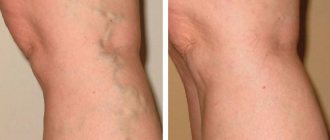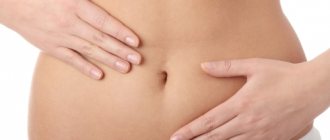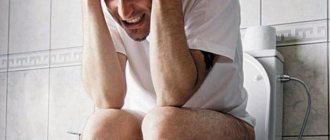Surgery to remove hemorrhoids is a last resort measure for its treatment, but it allows you to get rid of the acute manifestations of the disease. If you have hemorrhoids, it is imperative that you follow a strict diet, and in the postoperative period you need to pay special attention to it. Removal of hemorrhoids, like any other surgical intervention, is a physical and psychological trauma for the body. Therefore, in order to have the strength to recover, he needs all the necessary nutrients.
What types of hemorrhoids are there?
Types of hemorrhoids are divided depending on the cause of the pathology, the symptoms that appear and the nature of the course of the disease. Each type has distinctive features, therefore, before starting treatment, they not only establish the factors that led to inflammation, but also determine the form of the disease.
So what are hemorrhoids and how to treat them? This disease can be classified in different ways. Hemorrhoids themselves can be either an independent pathological process or a sign of some other disease. The types of hemorrhoids can be divided as follows:
By origin:
- hereditary or congenital;
- acquired.
- Acquired hemorrhoids are also divided into:
- primary, as an independent disease;
- secondary, as a consequence of another disease.
According to its localization, the disease is divided as follows:
- subcutaneous, also external;
- submucosal, also known as internal.
If hemorrhoids are left untreated, the anus swells on a constant basis, making the process of going to the toilet extremely painful, severe blood loss begins, purulent inflammation begins in the tissues, and hemorrhoids begin to die. As a result of tissue necrosis, there is a risk of blood poisoning, which requires immediate treatment in a hospital setting.
The result of normal functioning of the intestines is the processing of food and the formation of feces. Harmful substances accumulate in the intestines, which, if the body is healthy, are eliminated in a timely manner. Read more in the article: “monitor bowel cleansing: what is it.”
Chronic
This form characterizes the long-term development of the disease and is dangerous due to its complications in the form of necrosis, purulent tissue detachment, abscess, etc. The symptoms of the chronic form are pronounced only during exacerbation of the disease. In other cases, the disease may pass unnoticed by the patient and progress to complex phases that require surgical intervention and removal of hemorrhoids. Then nutrition becomes limited, and a few days before and after the operation the patient is prescribed complete fasting.
Spicy
This form of the disease is considered the initial stage of hemorrhoids and is expressed by vivid symptoms: pain in the anus, fever, diarrhea or constipation, etc. You cannot relieve these symptoms on your own, because you will only remove the signs of the disease that bother you, and the process of development of hemorrhoids will continue after a few Within months, the disease will develop into a chronic, intractable form.
Pancreatic steatosis (fatty infiltration, fatty lipomatosis) is a pathological process that is characterized by the irreversible replacement of functionally active cells with lipocides. Read more in the article: “Pancreatic steatosis: what is it?”
Seeing a doctor with an acute form of hemorrhoids will allow the patient to be cured of the disease using traditional medication. Otherwise, removal of hemorrhoids, both external and internal, will be required.
Acute hemorrhoids, stage 1 Acute hemorrhoids, stage 2 Acute hemorrhoids, stage 3
Surgical removal
Currently, there are two methods of getting rid of hemorrhoids surgically.
Advertising:
- Milligan-Morgan operation - excision of internal and external nodes.
- Open hemorrhoidectomy is performed only in a hospital setting under general anesthesia. Closed hemorrhoidectomy does not require hospitalization of the patient; the operation is performed under local anesthesia. The whole procedure lasts about half an hour, and the patient is given a certificate of incapacity for work for a period of 3-5 weeks. Contraindications: pregnancy, oncology, AIDS, Crohn's disease, severe or extensive inflammation in the perianal tissues.
Operation according to Longo. The doctor removes part of the rectal mucosa, cutting off the blood supply to the rectal veins. As a result, the inflamed nodes are pulled up and gradually replaced by connective tissue. The procedure is performed in a hospital under local anesthesia and has no contraindications.
The patient returns to a full life within a week after the operation. This method of eliminating hemorrhoids is possible only if the cones are internally localized. External hemorrhoids are not removed using the Longo method. A step-by-step video of the operation can be viewed on specialized websites (viewing is recommended only for doctors). In the case of external hemorrhoids, the three main nodes are removed and the feeding vascular pedicle is ligated. Smaller formations disappear on their own over time.
When should you sound the alarm?
You may suspect hemorrhoids if:
- you are concerned about itching, general discomfort, a feeling of a foreign body in the anus;
- discharge of various types appeared - purulent, bloody, mucous;
- you have discovered nodes or tumors protruding from your anus;
- often there is a urge to defecate, which ultimately turns out to be “false”;
- you suffer from frequent diarrhea or constipation (especially if they have nothing to do with your diet);
- There is dark blood in the stool.
In principle, the presence of even one or two of the listed symptoms is a significant reason to consult a specialist doctor.
If you have discovered some of your symptoms and decide to visit a doctor, you need to know which doctor to go to. Hemorrhoids are usually treated by proctologists - doctors who specialize specifically in diseases of the rectum. Such a narrow specialization allows doctors to “evaluate” diseases from different angles and be able to choose the right treatment regimen in various cases, even in the presence of a large number of contraindications in patients.
What not to eat after 1 month
Practice shows that a month after surgery, the body recovers almost completely. However, the established diet should be maintained. Continue, as before, to eat little but often, continue to keep a significant place in the menu for vegetables without a large amount of coarse fiber, fermented milk products should always be present on the table, and the need for proteins should be compensated by light varieties of meat.
The patient begins to feel practically healthy and temptations arise. Most often, this is a temptation to drink soda, as well as return coffee and strong tea to your menu. This should not be done to avoid recurrence of hemorrhoids.
Principles of diet after surgery
After removal of hemorrhoids, all patients are prescribed a diet, which consists of the following principles:
Advertising:
- fractional meals - 5-6 times a day in small portions;
- sufficient fluid intake - 1.5-2 liters of clean water without gas per day;
- the total daily calorie content of food must correspond to the constitution, age and type of activity of the patient;
- gentle heat treatment of dishes - steaming, boiling, baking;
- the optimal temperature of the food consumed is 40-70 °C;
- chewing food thoroughly;
- eliminating from the diet foods that irritate the intestines, causing constipation and gas formation;
- categorical refusal to drink alcoholic beverages;
- mandatory presence of plant fiber in the diet.
- All food products after surgery after hemorrhoid removal must meet a number of criteria, namely:
- do not irritate the intestinal mucosa;
- do not cause constipation;
- do not increase gas formation in the intestines;
- promote the rapid restoration of damaged tissues.
A proctologist together with a nutritionist will help you choose a diet after hemorrhoid removal. Each product consumed should only be beneficial and contribute to a rapid recovery.
After operation
The third day
Following the dietary guidelines for people following hemorrhoid surgery, on the third day you can begin to introduce foods such as soft fruits (bananas and kiwi are best). We continue to give the patient soft vegetables, boiled or baked, but no longer need to wipe them. Also on the third day you can include fermented milk products in your diet. You can start giving broth cooked with chicken meat in small portions. It should be remembered that the portion should be small and feeding should be frequent, every 2.5-3 hours.
Foods you can eat after surgery
Having undergone surgery to remove hemorrhoids, after fasting for a day, do not rush to pounce on food. Remember that in the postoperative period, both the sutures and the body as a whole cannot bear heavy loads, so you need to start eating and introduce different foods into your diet gradually. Listen carefully to how your body reacts to food intake and to a new product.
Advertising:
When eating food while on a diet, it is better to steam, boil or stew, but under no circumstances eat fried food. Fat and highly coagulated protein that occurs during frying can be detrimental to rehabilitation after hemorrhoid removal.
Consider the list of products that are recommended after hemorrhoid surgery:
- Porridge boiled until crumbly from millet or buckwheat
. This product is indispensable when maintaining a diet after hemorrhoid removal, because millet and buckwheat cereals are very nutritious and, at the same time, easy on the stomach and intestines. To avoid unwanted stickiness of porridge grains, before cooking, rinse the grains under running cold water 5-6 times, cook until almost ready, turn off and let sit so that the grains absorb excess water. - Wheat bread made from wholemeal flour
. This type of bread is very rich in B vitamins and many useful substances, which will allow you to recover faster after surgery and will not complicate the digestion process. - Fermented milk products
. Unlike fresh milk, in fermented milk products, the bacteria that cause fermentation are already in an inactive state. During the process of fermented milk fermentation, they produced a lot of useful and nutritious substances that improve digestion processes. Therefore, it is recommended to consume fermented milk products in the postoperative period. - Any organism needs proteins to function effectively
. To replenish them, chicken, veal, and fish are quite suitable. But, do not rush to immediately introduce these foods into your diet; it is advisable to start eating meat and fish 5-7 days after surgery using small test portions.
Along with meat, vegetables and fruits should be mandatory in the diet. The healthiest vegetables are those with thin fiber. It could be carrots, pumpkin, beets, cauliflower, lettuce. It is better to eat them baked or boiled. In its raw form - very carefully, listening to your own feelings. The safest fruits are bananas and kiwi. It is better to replace plums and apricots with dried fruits of these types (dried apricots, prunes); they are known for their laxative effect, but it is advisable not to overdo it, because in large quantities they can also cause bloating.
As for drinks, pay special attention to them during the period after hemorrhoid removal. You need to drink a lot, preferably more than 6-8 glasses per day.
Dishes recommended after surgery
Pumpkin puree
. Grind the pumpkin pulp and cook it for 5-10 minutes. Turn pieces of boiled pumpkin into puree. You can add a spoon of honey.
Liver
. For cooking, you can use chicken or beef liver. Boil it for 30 minutes, chop it. This pate can be salted, taking into account that the salt norm per day is 10 grams.
Stewed fish with carrots
. Boil the carrots cut into strips and add lean fish fillets to this broth. Cook for 10-15 minutes, add some salt. You can prepare a mixed puree by chopping fish and carrots. Can be consumed separately, chewing food thoroughly.
Food should be varied, but prepared by boiling, stewing, baking, or steaming.
Doctors often advise patients not to forget about harmful foods and dishes and to adhere to a proper diet throughout their lives. After all, allowing yourself to eat fat once, you can again provoke the formation of hemorrhoids and subsequently get another attack of hemorrhoids.
Advertising:
Optimal diet after hemorrhoid surgery
If the operation was performed in a hospital, then on the 4-5th day table No. 5 will be prescribed - a diet that promotes rapid recovery and normalization of metabolism.
This diet is intended for anyone who has chronic diseases of the gastrointestinal tract, including hemorrhoids. It has a number of advantages:
- minimizes the load on the digestive organs;
- has a gentle effect on the pancreas;
- has a number of restrictions on temperature and composition, which helps to minimize mechanical and chemical effects on the diseased organ;
- contains a complete diet necessary to normalize metabolism and the functioning of the digestive system.
The diet involves the intake of all necessary ingredients into the body. The daily calorie content of such food will be about 2 and a half thousand kilocalories. You need to eat 5-6 times a day in small portions.
Soups: recipes
Chicken bouillon
. Boil the chicken breast. Moreover, the first water that boiled along with the brisket must be poured out. Pour in fresh water and bring to a boil again. Skim off the top fatty layer of the broth and pour it out. Cook for 40-50 minutes. You can add a little salt and herbs.
Ear
. Add a lean piece of fish to boiling water, you can add parsley and dill leaves. Cook for 20 minutes. Strain the broth and cool.
Salads: recipes
Salads can be made from any fresh vegetables, except for white cabbage, which increases acidity and irritates the walls of the stomach and intestines. When it comes to making salads, you should choose fruits that are not sour.
Cucumber salad
. Three fresh cucumbers on a fine grater. Add a little salt (taking into account that you can consume no more than 10 grams of salt daily). You can drizzle the salad with olive oil.
Pumpkin salad
. Before cooking, it is worth boiling a piece of pumpkin, since raw pumpkin is a heavy food for the digestive system. Grind the boiled pumpkin, add unrefined vegetable oil.
Second: recipes
Steamed meatballs
. Grind the cooked brisket, add the egg, make steamed meatballs.
Fish pate
. Boil lean fish in boiling water for 20 minutes. The broth can also be consumed during lunch. Remove the boiled fish from the bones, chop and add a little salt.
Dinner: Recipes
For dinner, casseroles, mashed potatoes, salads, and cereals are recommended.
Stewed zucchini
. Peel the zucchini, cut into slices and simmer in water for 15 minutes. You can add olive or unrefined vegetable oil.
Mashed potatoes
. Add a little greenery and fresh potatoes to boiling water. Cook for 20 minutes. Crush the potatoes and turn them into puree. You can add 50 grams of low-fat milk.
Desserts: recipes
For dessert you should not eat anything floury. It’s better to prepare berry or fruit mousse from non-acidic fruits.
Applesauce
. Remove the peel from the apple. Three on a fine grater or grind in a blender.
Pear mousse
. We peel the pear and wipe it, you can add a little low-fat kefir or yogurt.
So, for example, your daily diet could be represented by the following menu:
- breakfast - buckwheat porridge with butter, green tea;
- second breakfast - pumpkin puree with honey;
- lunch – vegetable soup or puree, meat;
- afternoon snack - vegetable stew, compote;
- dinner - buckwheat porridge, rosehip infusion.
Or:
- breakfast - cottage cheese, kefir;
- second breakfast - pumpkin puree, cottage cheese;
- lunch - soup, omelet with steamed cutlet;
- afternoon snack – millet porridge with cutlet;
- dinner - oatmeal, kefir.
The menu can be expanded or narrowed - everything will depend on the positive dynamics in the treatment of hemorrhoids. The doctor will develop dietary nutrition individually for each patient.
What should you not eat in the first month?
After the operation and a strict diet, which is followed during the 1st week, after this time you cannot begin to abuse foods that can damage the functioning of the intestines. If constipation returns or other problems arise, it may cause a relapse and lead to new hemorrhoids coming back.
Poor nutrition can also cause other health problems. By adhering to the principles of a healthy lifestyle and proper nutrition, you can protect yourself from many diseases and maintain vigor and health for many years.
If the patient is prone to frequent constipation, then it is necessary to exclude foods that contribute to this from the diet. Regarding the menu, you need to consult with your doctor, and also listen to your body. Each person has his own individual characteristics, and what passes without a trace for some may cause significant digestive disorders for others.
Relapses if the conditions of a healthy lifestyle are violated can occur within 5-10 years, and adherence to a certain diet can prevent the development of pathological processes. Poor nutrition is one of the provoking factors that can cause the re-formation of hemorrhoids.
When preparing dishes, it is better not to get carried away with fried and smoked foods, due to the fact that the overly coagulated protein obtained when frying the product is difficult for digestion and can interfere with the restoration of damage.
Prevention measures
Compliance with the recommendations below will help you avoid getting acquainted with hemorrhoids, even if you sit at the computer all day, and if it has already appeared, it will alleviate the course of the disease and reduce the number of painful exacerbations. It is easier to prevent any disease than to treat it! The following preventive measures will help prevent the appearance of hemorrhoids and their exacerbation:
- fight against stool disorders;
- proper nutrition;
- limiting alcoholic drinks and spicy foods;
- good defecation hygiene;
- prevention of physical inactivity: physical exercise.
The diagnosis of hemorrhoids must be confirmed by a specialist - a coloproctologist: under the mask of hemorrhoids, more serious diseases of the colon can be hidden. Since the time of Hippocrates, medicine has accumulated many methods for treating this disease. Some have gone into oblivion and cause horror at the mere memory of them (for example, cauterization of hemorrhoids with a hot iron). Others are still used today.









